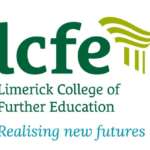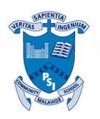Royal Irish Academy host four speakers to deliver a talk in response to the question, ‘What is Good Science,’ telling a story from their professional experience that illustrates what good science is, and another story where it didn’t go so well. Following the four presentations, a moderated discussion will explore insights from these stories and consider some of the following questions: who decides what is “good”? Can we identify the qualities that make science good? How do we recognise and support good scientific practice?
The event will take place from 18:00-19:30 on Thursday 8 February in the Royal Irish Academy, Dawson Street.
About the Speakers:
PROFESSOR MARIA BAGHRAMIAN MRIA
Maria Baghramian is Full Professor of Philosophy at UCD School of Philosophy and Professor II at the Department of Philosophy, University of Oslo. Baghramian was elected to the Royal Irish Academy in 2010 and to the Academia Europaea in 2021. She was, with the astrophysicist Luke Drury, the Principal Investigator of the Irish Research Council project “When Experts Disagree” and was the project leader of PERITIA – Policy, Expertise and Trust in Action – a Horizon 2020 multi-disciplinary research project funded by the European Commission (2020-2023). She has also participated in working groups of the All European Academies (ALLEA) and its science and policy mechanism SAPEA. Baghramian has published extensively on the philosophical topics of relativism, pluralism, trust and expertise. Her most recent books include Relativism: New Problems of Philosophy(Baghramian, M. and Coliva, 2019); From Trust to Trustworthiness (Baghramian M., ed. 2019); and Questioning Experts and Expertise (Baghramian M. and Martini C., eds., 2022).
PROFESSOR PETER LYNCH MRIA
Peter Lynch is emeritus professor at UCD. He is a former Deputy Director of Met Éireann and Professor of Meteorology at the School of Mathematics and Statistics in UCD. His interests include all areas of mathematics and its history. He writes an occasional mathematics column in The Irish Times and has published three books of articles, entitled “That’s Maths”.
His blog is at http://thatsmaths.com(link is external).
PROFESSOR SYLVIA DRAPER
Sylvia Draper is the Professor Molecular Materials in the School of Chemistry (2019-) and the Dean of the Faculty of Science, Technology, Engineering and Mathematics, in Trinity College Dublin (2019-). She is an active researcher (1992-) and has mentored over 20 research fellows and supervised > 30 Ph.D. students in a career that has spanned 30 years and seen her (i) awarded >7.5M€ from international and national funding agencies and consortia and (ii) publishing multiple outputs including >100 journal articles. Her work seeks to systematically design and isolate novel molecular materials with discreet optoelectronic properties for biological and sensing applications using increasingly low-impact environmental routes. In her role as Faculty Dean, and previously as Head of School, she has a significant role in the recruitment, progression and promotion of staff across a broad spectrum of activities in science. As speciality chief co-editor for a new journal (Frontiers in Biological Chemistry) and as a subject expert on research funding panels she is called upon to make decisions that impact individual careers and define research directions. In her capacity as Faculty Dean, her responsibilities include policy design and implementation, institutional compliance and finance. She sits on the People and Culture, and Environment and Sustainability Principal Committees in terms of College governance and on an international level contributes as member, chair or national representative in a number of organisations such as EurASc, IUPAC and RSC.
PROFESSOR JONATHAN COLEMAN MRIA
Jonathan Coleman is currently the Erasmus Smith’s Professor of Natural and Experimental Philosophy (1724) in the School of Physics and a PI in the CRANN and AMBER research centres. He graduated with First Class Honours and a Gold Medal in Physics in 1995 and completed a PhD in Physics in TCD in 1999, working in the research group of Werner Blau. After completing a HEA funded postdoc, he became a junior lecturer in 2001, rising to the Chair of Chemical Physics in 2011. He was appointed to his current position in 2022. Prof Coleman’s area of interest is in solution processing of nano-materials, predominately carbon nanotubes, nanowires and 2D nanosheets such as graphene. He is most well-known for developing Liquid Phase Exfoliation, a versatile and widely used method for preparing 2D materials. These solution processing methods allow the formation of dispersions, suspensions and solutions of nanostructures and facilitate the production of coatings, thin films and composites. Coleman works on applying these materials and methods in a number of areas including electro-mechanical sensors, printed electronics and energy storage materials. In the latter area, he has particular interest in new electrode materials for lithium-ion batteries, battery electrode architectures and the factors limiting rate performance in batteries. Prof Coleman has been involved in a number of industry-academic collaborative projects with companies including Hewlett-Packard, Intel, SAB Miller, Nokia-Bell Labs and Thomas Swan.
About the Moderator:
DR SHANE BERGIN
Dr Shane Bergin is a physicist and an Assistant Professor in science education at the UCD School of Education. Shane’s research interests include informal science learning, education policy development, and public engagement in science. Shane is well known for Quavers to Quadratics – an informal education programme he created with the National Concert Hall. It sees children play with ideas common to science and music. Since 2014, over 10,000 children have taken part with their play led by undergraduate students from UCD and Trinity. Shane is a regular contributor to Irish radio with science slots on RTE’s Today with Claire Byrne and Newstalk’s Futureproof. He’s also written science books for children, including Peigi’s Adventures in Science that introduces science and ideas of social justice to young readers. In 2023, Shane received the Leonardo da Vinci Award for his public engagement work – most notably for his podcast (The Trust Race) exploring public trust in science.

















